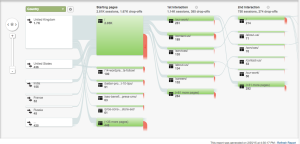Harvard Study Reveals Yelp Data Advantages For Ad Targeting
by Laurie Sullivan , Staff Writer @lauriesullivan, February 21, 2018
A Harvard study suggests that data from digital platforms has the potential to improve people’s understanding of how neighborhoods change in near real-time. While the data isn’t geared toward marketers, it can certainly be used to support online targeting.
Researchers — one from the department of economics and two from the business school — combined data on businesses from Yelp, which helps local businesses build lists and remarket to customers — with data on gentrification from the Census, Federal Housing Finance Agency, and Streetscore, an algorithm using Google Streetview.
The paper, “Nowcasting Gentrification: Using Yelp Data to Quantify Neighborhood Change,” analyzes the changes a neighborhood’s demographics, housing prices, and physical landscape. Researchers then compared those changes to patterns in Yelp data across four major business categories: groceries, cafes, restaurants and bars. The study focused on five cities: New York City, Boston, Chicago, Los Angeles and San Francisco. Its main findings are:
It’s about monitoring the companies that open and close in neighborhoods and that data comes from online directories like Yelp. Neighborhoods in the midst of redevelopment tend to have “growing numbers of local groceries, cafes, restaurants, and bars, with little evidence of crowd-out of other types of businesses,” according to the study.
This type of data could help with search targeting, as well as other types of media targeting.
For example, the entry of a new coffee shop into a ZIP code on Yelp can be associated with a 0.5% increase in housing prices. The data provides a lead indicator for housing price changes and can help to forecast the neighborhoods that are changing.
When targeting ads based on location, Yelp could show that wealthier neighborhoods may attract more businesses if wealthier residents spend more at local businesses or are willing to pay more to cut travel time, according to the research.
The businesses will also tell marketers how much consumers are willing to spend on certain items. For instance, the research notes that houses located near a Starbucks location — or an increase in Starbucks locations in a specific area — have seen increases.
The study uses data from Yelp — which aggregates listings by ZIP code, city, state, and country — as a way to predict housing prices and more. The data does have its limitations, per the research, because it comes from the business itself and not a third-party audited source.
The number of the types of businesses, the price they change for goods and services and the reviews for those businesses all provide insight into changing neighborhoods and forecast local economic activity.
(67)
Report Post



